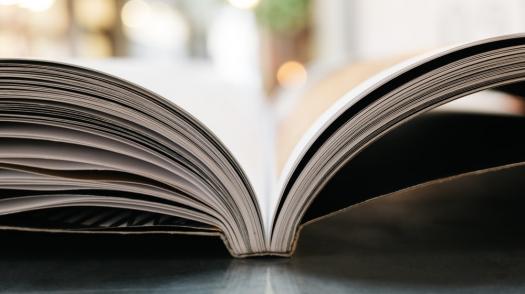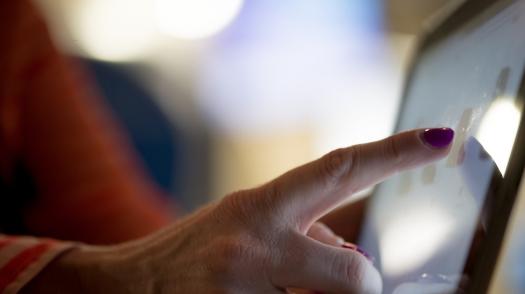
Looking after yourselves
This section looks at the way acquired brain injury can affect the rest of the family.
Labeebah was only two when she was knocked down, suffering a severe brain injury. Her mum, Shaheela, tells their story.

Published: March 2015. Date of brain injury: 2011. Child's age at time of injury: 2 years
Shaheela was at work when she learned of Labeebah’s accident in 2011. She rushed to the hospital, where her daughter was in a critical condition.
“She was lying on a bed, so tiny, so still, wired to beeping machines and monitors, with drips in her hands,” says Shaheela. “It was awful to see my little toddler in a state like that.”
The family were told she had a five per cent chance of survival and would probably never be able to do much for herself ever again.
She pulled through, had six months in intensive care and another six months receiving rehabilitation to gain as much ability back as possible.
She underwent a tracheostomy as she couldn’t breathe for herself and had a feeding tube inserted.

“At the start there was a feeling of loss in a way,” says Shaheela. “She’d reverted back to being like a very young baby. She was floppy and couldn’t stand or walk. She did have some speech but very basic.”
Physiotherapy and hydrotherapy were among the sessions that helped Labeebah regain strength and she had to wear splints on her legs.
Her muscles on the right side of her body were affected the most and still need therapy.
She was also left with limited sight in her right eyed.
Labeebah’s right side has continued to get stronger since leaving rehabilitation and she is able to use her right hand much more.

“At the start Labeebah wouldn’t use her right hand much at all,” says Shaheela. “But now, if we encourage her she uses it to eat and drink, which is great. We have to prompt her continually but hopefully the more we do, the stronger it will get and she will begin to use it herself naturally.”
One of the effects of Labeebah’s brain injury has been perseveration, which means she tends to get stuck on saying the same thing or doing the same action and repeating it again and again.
“This is something that we accept is not uncommon with brain injuries. We try to engage her in something else when it happens, something new that will take her mind off whatever it is she is repeating,” says Shaheela.
Labeebah suffered muscle spasms in her legs and feet following her accident.
Although she gradually relearned how to walk with the support of others, these spasms meant she couldn’t put her foot flat to the ground.
Her foot was permanently arched and she walked on tiptoe and was very unsteady.
She had her first botox injection last year to help improve this problem by blocking the chemical signals that were causing her muscles to contract.
“It was six weeks until the bandages came off and we started to see the effects.
“Before, her right foot was permanently flexed. But over time it gradually relaxed until she could put it flat to the floor again.”
Although she still uses her wheelchair when out and about, the easiest way to get around, Labeebah’s walking has improved greatly. She still needs support from someone but is continuing to become more independent.
“She is growing fitter and stronger all the time,” says Shaheela. “She can now stand without her splints on as long as she hold on to something.
"She has also been taking a few tentative steps from room to room without her splints.”
Since the early days after Labeebah’s accident she has been very attached to her father, Syed.
Shaheela thinks it may have been because it was Syed that stayed with her at the rehabilitation centre while she looked after her other daughter.
However, this attachment has increased to the extent that it now causes difficulties in social situations.
“It’s like an obsession she has with her dad that we find really hard to take control of. She won’t let him talk to anyone else and is very insistent that all his attention is on her. There have been occasions where she has insisted he leaves rooms where he is talking to people. This has made social gatherings and family parties really difficult. And I really feel sorry for him as he wants to do what is right by her.”
Since giving birth to their third daughter Shaheela and her husband have taken breaks with just the newborn so that they can spend quality time together. Shaheela says Labeebah’s over-protectiveness of her dad is getting more extreme as she gets older.
“Perhaps this is a discipline issue that we could take more control of. But it’s hard as we don’t want her to feel hurt or abandoned.”
Doctors aren’t able to tell whether Labeebah’s brain injury will affect her development and if it will result in puberty complications.
Shaheela explains that she has been thinking about this as her daughter gets older: “It’s only natural to want your daughter to develop naturally. I hope she has normal menstrual function and develops just like every other adolescent but we really won’t know until that time comes.”
“She’s good with other children and can socialise well at school with other boys and girls.”
Labeebah goes to a specialist school where she continues to get some therapy and swimming which is still helping her.

She can now tell her parents when needs to go to the toilet and wears pull-ups during the day which her mum says is another great step in the direction towards independence.
She adds: “She likes to play imaginary make believe games with dolls, which I’m really happy about. She has an interest in life and growing up.
“She’s enjoying being a big sister to Zahraa and it hasn’t seemed to unsettle her. My older, daughter Maahirah is a good help, as is my extended family. Labeebah does need more attention and time and that’s fine.”
Talking about the overriding hope that she has for Labeebah in continuing to recover, she says: “My biggest wish is that she can walk freely again with no support. I dream that one day she will just walk easily. And I’ll keep wishing that.
“The best thing is that Labeebah is still here. Our three girls are the most precious and magical thing.”

This section looks at the way acquired brain injury can affect the rest of the family.

This section talks about the steps towards adulthood after an acquired brain injury.

Read our guide to managing the return to school after an acquired brain injury.